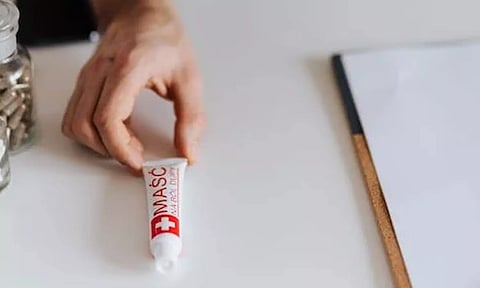

TAIPEI: Higher doses of topical corticosteroids, which are commonly used to treat inflammatory skin conditions, can elevate risks of osteoporosis and bone fractures associated with osteoporosis, indicates a new research.
Systemic corticosteroids are known to interfere with bone remodelling and increase osteoporosis and fracture risk, but evidence on the topical corticosteroids on bone health has been inconclusive.
The study, published in the Journal of the European Academy of Dermatology and Venereology, showed that clear link, particularly for extended periods of exposure. Young people and women were found to have an increased risk, the study said.
“This study emphasises that using topical corticosteroids to treat inflammatory skin conditions should be done very carefully and clinicians should be aware of these potential side effects,” said corresponding author Chia-Yu Chu, of National Taiwan University Hospital and National Taiwan University College of Medicine.
For the study, the team selected 129,682 osteoporosis cases and 34,999 major osteoporotic fracture (MOF) cases and matched them with 518,728 and 139,996 controls (without osteoporosis or MOF) by sex and age.
The results showed clear dose-response relationships between long-term use of topical corticosteroids and osteoporosis and MOF.
For example, compared with no doses, low, medium, and high cumulative doses of topical corticosteroids were associated with 1.22-, 1.26-, and 1.34-times higher odds of developing osteoporosis over five years.
These respective doses were linked with 1.12-, 1.19-, and 1.29-times higher odds of experiencing MOF. Women had higher risks of osteoporosis and MOF than men. Also, younger people (below 50 years) had a higher risk of osteoporosis compared with other age groups.